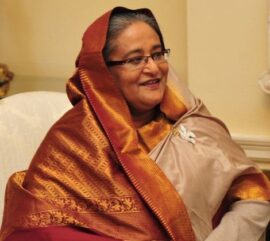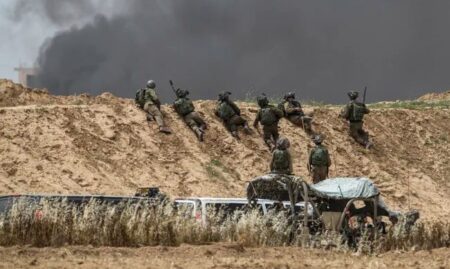Election outcome crucial for India’s security
Delhi, Jan 07: On Sunday, Bangladesh commenced voting for the general election, with Prime Minister Sheikh Hasina seeking a fourth consecutive term and the fifth overall for her Awami League-led alliance. However, the elections unfold amid a backdrop of pre-election violence, and concerns persist as the main opposition, the Bangladesh Nationalist Party (BNP), along with other like-minded parties, has declared a boycott of the polls. In response, the BNP has called for a nationwide strike lasting two days starting Saturday.
The opposition’s decision to boycott the election stems from allegations regarding the credibility of the electoral process. The BNP contends that the ruling Awami League has fielded “dummy” candidates as independents to create the illusion of a credible election, a claim vehemently denied by the ruling party. Prime Minister Sheikh Hasina characterizes the main party boycotting the elections as a “terrorist organization,” emphasizing her commitment to preserving the democratic nature of the country.
Among the dozens of parties refusing to participate in the poll, the Bangladesh Nationalist Party (BNP) asserts that the election will neither be free nor fair. Tensions have escalated in Bangladesh since October, marked by a large anti-government rally demanding Hasina’s resignation and the establishment of a caretaker government to oversee the election. However, Hasina’s administration contends that there is no constitutional provision allowing for a caretaker government.
The upcoming elections in Bangladesh go beyond concerns about democracy and economic challenges as the Hasina government has been notably cooperative in addressing insurgent issues in India’s northeast.
Given Bangladesh’s geographical proximity to India, with borders shared with Mizoram, Tripura, Meghalaya, Assam, and West Bengal, security concerns are intertwined. Historically, during periods of military rule or governance by the Bangladesh National Party (BNP), the country has served as a sanctuary for separatists and insurgents from India. Additionally, it has been a launching pad for both domestic and foreign Islamists conducting operations in India.
Recently, two operatives of Harkat-ul-Jihad Islami (HuJI) from Bangladesh were sentenced to death for their involvement in a 2005 bomb explosion on the Shramjeevi Express. Four other individuals received life imprisonment for the same case. The blast in eastern Uttar Pradesh resulted in the death of 14 people and injuries to over 60.



